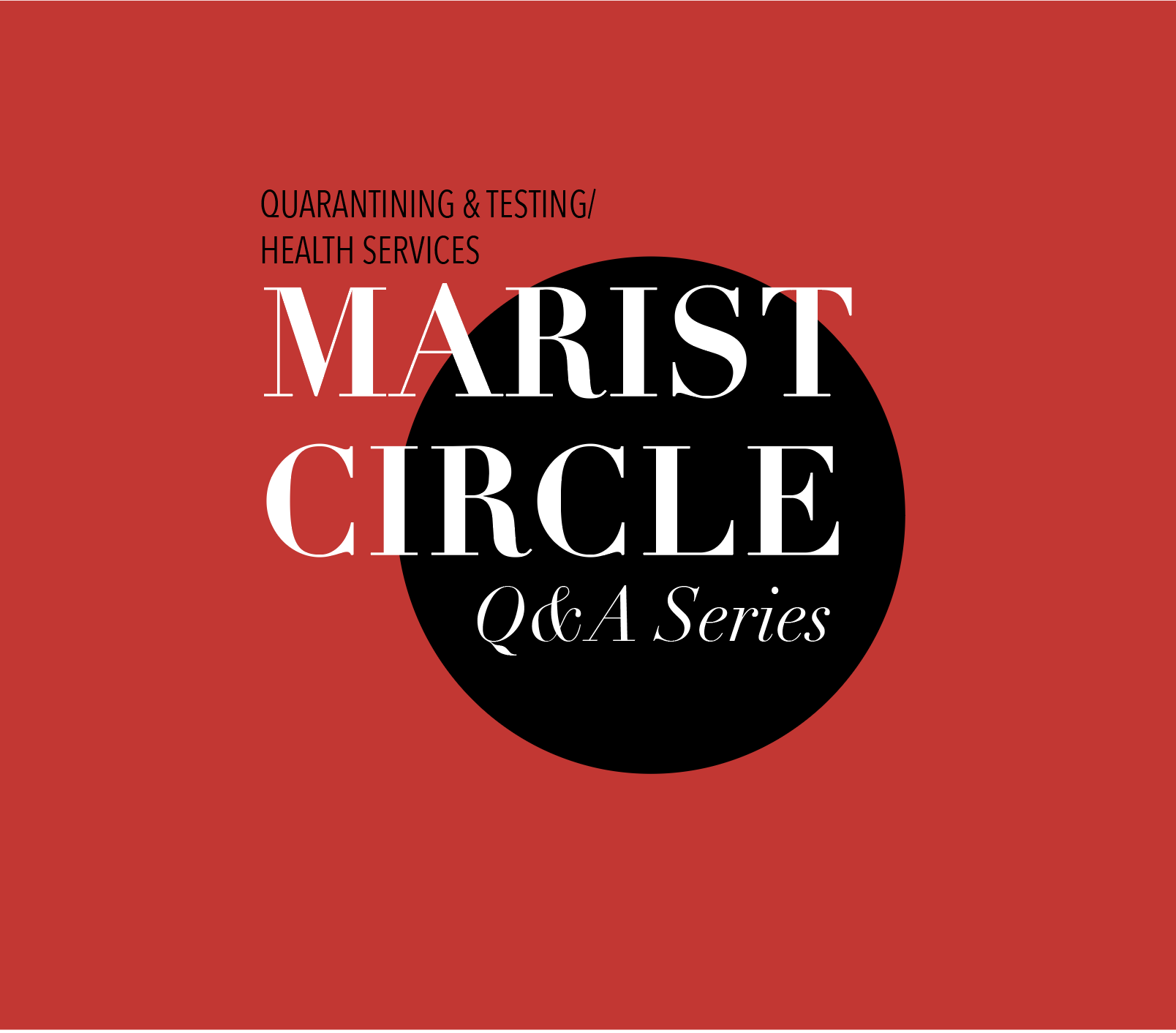Q&A Series: Health Services Changes Location, Implements Daily “Symptom Screeners” and Develops Team of Contact Tracers
Throughout the week, the Student Affairs staff will offer COVID-19 information sessions. The series started with a live Q&A event regarding “Health Services/Quarantining & Testing,” hosted by Assistant Dean of Student Engagement and Leadership Robin Torres at 2 p.m. EST on Monday. All questions related to the new health services location, access to care, quarantine procedures, symptom reporting and contract tracing were answered by Director of Health Services Dr. Melissa Schiskie.
Health services will no longer be located in the Murray Student Center; instead, the office will be located on the Eastern side of campus at 69 West Cedar, near the Upper West Cedar Townhouses. The hours for this year have also changed to 8:30 a.m. to 5 p.m. Monday through Friday.
“Our Student Center is a very high traffic building with the dining hall, the bookstore and multiple classrooms being configured in some of the spaces this year, and so we were concerned about the possibility of students seeking care and coming into a well building while ill,” Schiskie said. “So we are trying to discourage students who are potentially ill from coming into a healthy space.”
Students will also be required to make appointments over the phone with Health Services instead of simply walking in when they feel sick. The goal is to discourage students from entering Health Services with symptoms that could potentially pose a risk to other students and staff. Health Services will also be conducting more telehealth visits through the phone or through video calls to limit the time medical staff and students have to share the same space.
“Of course some visits will still need to be in person, but we have learned in the last several months of this pandemic that there are many things that we can actually accomplish by phone or video that we hadn’t done before,” Schiskie said. “It has opened our eyes to all the ways we can deliver care.”
Emphasizing the college's Reopening Strategy report, Schiskie discussed the new rules regarding the flu vaccine this year. Unlike in years prior, Marist will require that all members of the Marist community receive a flu vaccine. The only exceptions made will be based on medical conditions and religious beliefs in compliance with legal requirements and standards of medical care. The deadline for the submission of the vaccine will be January 15, 2021.
“The symptoms of COV-19 and the flu can be similar, and so in order to try and decrease the amount of students that have the flu, we are trying to have everyone receive the flu vaccine to decrease the flu on campus,” Schiskie said. “We always offer flu shot clinics on campus, but this year we have increased the number. For the fall we have clinics scheduled with our clinical health partner Rite Aid on September 9 and the 23, October 7 and the 21, and November 4 and 18.”
Marist will be providing masks for students, but Schiskie still advises that students bring their own if possible. To mitigate the risks of COVID-19, students will now be required to take a “symptom screener” before entering campus or leaving their housing each day. There are signs across campus reminding students to wear a mask, social distance and practice good hand hygiene.
“It is important that students isolate as soon as they are not feeling well,” Schiskie said. “That means they should not go to class, the dining hall or the library. They should stay in their residential space and contact Health Services, and if it's after hours they would contact the Resident Director or the Office of Safety and Security who will give you additional advice. We are creating a robust plan to make sure our students can easily provide the necessary documentation so that missing class due to being ill will not be held against them.”
Marist will be working with a community healthcare partner to provide COVID-19 tests. The community partner will be helping to provide the tests and the testing sites. The college has negotiated to have expedited test results for symptomatic students, which will help in the college’s efforts in contact testing. Schiskie said more information will be shared at the second Health Services/Quarantining & Testing session on Wednesday, July 29, at 7 p.m. EST.
“Marist has developed their own team of contact tracers to work, in addition with the New York State Department of Health,” Schiskie said. “We are developing our own contact tracing protocols to work in conjunction with the New York State Department of health to quickly identify potential risks and contact so that we can help those students and faculty be identified. Potentially, the person will then be moved into quarantine and testing as needed.”
Marist Health Services strongly recommends that students get tested up to two weeks before returning to campus. After being tested, the college encourages all students to self-quarantine for two weeks before arriving on campus, and students traveling from domestic and international high-risk areas will be required to do so. Students should limit risk of new exposures before returning to campus as the PCR COVID-19 test will only inform students of their infectivity status at the time of their test. Students are required to provide the results of their test before arriving at Marist.
“Taking that test and finding out your negative and then not being cautious up until the point when you come to campus defeats the point of having that test,” Schiskie said. “We are really trying to capture folks who were unaware that they were positive so that they didn’t unknowingly bring that to campus.”
Source: Sydney Kysar
